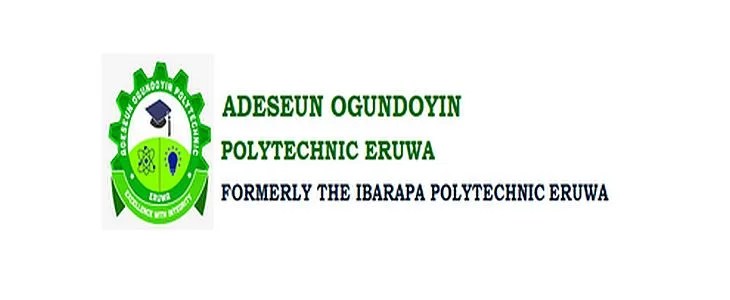
Naturally, pain is the body’s way of communicating that something is wrong. It is a positive sign that a person is still alive but could also be an indicator of how long he or she may have left to live. There is pain in Nigeria. It comes as a result of our numerous underlying problems that threaten the peace and economic stability of this country. An example of one of those problems is the literacy and skills gap in Nigeria today which has caused us to suffer from unemployment, insecurity and most importantly corruption. On a lighter note, this pain is good, I suppose, as it shows that Nigeria is still alive. However, how long she remains alive depends on our ability to source out the root cause of our pain and annihilate it instead of just shrouding it with painkiller- like policies, which allow policy makers to sleep at night while the ailment continues to devour silently.
Sadly, the passing of new policies is just no longer enough in tackling the problem of unskilled labour and illiteracy in this country. Therefore, in order to bridge the literacy and skills gap in Nigeria, I believe it is important to briefly highlight the problem and analyze why it exists, examine government policies on education both past and present, and then finally suggest innovative but also practical ways to solve the various incompetencies of these policies and ensure that formal education is accessible to every Nigerian.
The Nigeria DHS EdData Survey 2010 narrowed down the definition of literacy as one’s ability to read a complete sentence in English or in their native language.[1]Hence, the Survey showed that only 46% of Nigerian children between the ages of 5 to 16 were literate.[2] Furthermore, the literacy rates varied significantly amongst the states. According to the Survey, the inability for children to read and write was found mostly in the states within the North West and North East zones. Statistics equally showed that 80% of children between the ages of 5 to 16 could neither read nor write in 11 of the 19 States in the North. On the contrary, amongst the States in the South, only Enugu, Ebonyi and Cross River states were recorded to have had 55-56% of children aged 5-16 that could not read.[3]
The first thing that comes to mind when trying to eradicate illiteracy in Nigeria would be to simply make education free and mandatory. This is because surely, if learning were free, then there will be no reason for people to not get educated. However, with present literacy statistics, it is quite hard to believe that Primary School Education has been free for all Nigerians since 1976.[4] The Universal Primary Education (UPE) programme of 1976 was created to ensure that all the six years of primary education were free and compulsory for all Nigerians. However, when that innovation fell to the wayside due to multiple factors, some external to the country but most internal[5], another scheme had to be introduced.
The UBE Act was introduced in September 1999 as an improved version of the UPE and was signed into law on 26th May 2004. This law included the first three years of Secondary School along with the Primary school years as free and compulsory for every Nigerian child.[6] This meant that from the implementation of this scheme every child, boy or girl, between the ages of 5 to 16 would have had no business being out of school during school hours. Consequently, the parents/guardians of every child would now have the responsibility of ensuring their children receive an education or face possible jail time. The Universal Basic Education Commission was also established in 2004 to ensure that all Nigerians were given free access to basic education. [7]
It is then very alarming for statistics to show that as of 2010, 31% of Nigerians within the ages of 6 to 16 have never attended primary school.[8] Once again, the disparity between the North and South shows as 72% of children in Borno State for instance, have never attended school compared to the South where rates range from 27% (Kwara) to 0% (Imo).[9]Does this mean that the UBE policies are only being implemented in the South and not in the North? Probably, but it is also important to note that Private schools are more abundant within the South where literacy rates are higher, while in states like Jigawa and Sokoto, where less than 1% of children school privately , the lowest literacy levels are recorded.[10] This shows that perhaps the standards of these UBE schools are to blame. Other factors that contribute to low literacy levels in the North East and North Western regions of the country would be the large number of male children that attend Qur’anic schools and not the formal UBE schools. These Qu’ranic schools provide them with religious education but not the formal education that is required for these boys to gain employable skills. These young boys often referred to as “almajaris” in the Hausa language, are forced to live on the streets and beg for pittance in order to sustain themselves.[11] Child marriages are also a frequent occurrence within the North.[12] Girls are given away by their families for marriage putting a halt to their education. Some parents would rather not waste resources by sending their girl children to school but would prefer to have them stay at home and be educated on how to take care of the home in preparation for marriage.[13]
The Southern states may have higher literacy rates but recent trends show that young boys, particularly in the South East, are dropping out of school to pursue skills in craftsmanship. As a result of this, an increasing amount of young boys can be found in mechanic workshops and market stalls serving as apprentices during school hours.[14] The reason for this alarming trend could be attributed to economic hardship and the growing zeal to “touch money” due to the frustration of older family members not being able to get into higher institutions or even being able to get a job after completing their education.
The Federal Character Law which imposes a quota system for entrance into tertiary institutions makes it immensely difficult for Nigerians from the South East and South West to get into post-basic tertiary institutions. This is because the cut off marks they are expected to achieve in their school-leaving examinations are outrageous compared to the grades required from students in the North East and North West. The Quota system extends into various public sectors of the economy and is what I believe to be responsible for the skills gap we see today. The quota system believes in the sharing of public school places amongst all Nigerians irrespective of achievement. This system that was originally designed to promote an all inclusive educational system has failed Nigerians because it promotes mediocrity by allowing one to scale through the ranks to fill the quota of their designated states.
The geo-political location of a child does not and should not determine his learning ability. Therefore, it is unacceptable that in a state like Yobe, the cut off mark for entry into a federal college is 2 out of 200, while in Anambra state it is as high as 139.[15] This law harbours illiteracy and creates frustration. It ignores the fact that there is a serious problem with the educational facilities in states where children are under performing and divides the country rather than uniting it as the law was created to do. For Nigeria to become a developed nation, we must promote meritocracy over mediocrity. This, in my opinion, would better unite the country as it would bring skilled men and women from all parts of the country to work together and move this country forward. The reviewing of the Federal Character Law is indeed long overdue.
However, innovation requires that we find new and better ways of doing things in the midst of unfavourable government conditions. Therefore, from the problems and challenges stated above, I have come up with five innovative ways by which in my own view, the literacy and skills gap in Nigeria could be bridged. I believe that these suggestions when applied would raise literacy levels in the North, lower the school drop- out rates within the South and improve the quality of education being received nationwide.
I. Establishment of more Private Schools
I had the privilege of tutoring a class of government secondary school students in Yola for their JAMB/SSCE examinations, last May. When I gave them the assignment to describe Adamawa State for me, almost all of them described it as the proud home of the American University of Nigeria. They were very proud of the fact that the school was founded by the former Vice President of Nigeria, Alh. Atiku Abubakar GCON, a man from Adamawa state like themselves.
We cannot wait for the government to “fix” all of our problems. As stated earlier, statistics show that the States with higher literacy rates were the States that had a considerable amount of private schools. This showed that private schooling had a direct impact on the level of illiteracy amongst the states.
These private institutions do not only raise literacy levels but they also establish businesses that enable the local economy to flourish. They stimulate job creation for the locals both skilled and unskilled. Private schools also attract skilled labour from all over the country and as a result of this, community development takes place. These private institutions tend to benefit the local children immensely as they are in more favourable positions to obtain scholarships. The establishment of private schools should be encouraged by Governors in their respective states.
However, the problem of insecurity in states like Kano, Borno and Yobe tend to scare people and development away. This, I believe is a temporary setback and a problem that would hopefully be taken care of by the N950billion the Federal Government is spending on national security this year .[16] In the mean time, prominent Northern Leaders who command great respect and influence should devote a great deal of their time in advocating the importance of education. They should lead the way in the building of private schools because with their power and spheres of influence, it is unlikely that such establishments would be jeopardized by insurgency. Understandably, not everyone would be able to afford such schools. However, it will pave the way for more affordable schools to be set up as more people would be interested in learning.
Furthermore, prominent Nigerians with a greater influence in the South have the moral duty of advocating the importance of education. There are a lot of wealthy educated business men from the South East who can serve as role models to the young boys who are dropping out of schools. Social media would be an excellent platform to showcase how important it is to pursue education up to the Tertiary level.
II. Free School Meals
70% of Nigerians across the nation live below $1 a day.[17] Children as young as five are forced to work in order to help their parents to cater for the family. The odd jobs these children are forced to do are barely enough to afford them a proper meal. Hence, no real investments can be derived from child labour. With the introduction of free school meals in public schools, parents are guaranteed that their children will be fed a decent meal. This makes the prospect of sending children to school more appealing. It could also solve the problem of the almajari who stay on the streets to beg as these children would now attend school during the day and continue their religious education in the evening. Furthermore, illiteracy rates amongst the girl child will drop significantly as parents who force their girls to marry young due to financial constraints, would have less of a financial burden to bear by having them educated. Free school meals are provided in most countries around the world in both the developing and already developed countries.
Funding for this scheme is a critical element of its success and there are a lot of options. The state governments can grant a contract to a private catering firm to ensure that this scheme is implemented. Tax incentives can be granted to companies that sponsor the feeding programmes in these schools. State Governors can implore international organisations like UNICEF, UNESCO and USAID to sponsor the meals in various schools around the state. The National Agency for Food and Drug Administration and Control (NAFDAC) would also have to work closely with schools that are implementing this scheme to ensure that the food being provided is up to specified health standards.
It is important that we first get these children through the school doors as this is one crucial step to be taken in order to get rid of illiteracy for good.
III. Distance Learning Schemes
Learning does not have to start and stop within the constraints of a school building. With the help of radios and complimentary physical materials such as workbooks and pamphlets, learning can be brought into the homes of people living in rural parts of the country.
These educational radio stations would broadcast in local languages as well as in English to ensure that Nigerians are familiar with their lingua franca. The workbooks would be free and distributed from door to door. They would also be made available in schools, offices, or any other accessible place for people to pick up. Students can answer questions in the workbooks and tune in to the radio station at a designated time to get the answers. The Distance Learning scheme would be beneficial for both adults and children. Radio programmes broadcasted during the day would be used to compliment the learning that children do in school by focusing on home work topics. This would ensure that parents do not see listening to the radio station as an alternative to sending their kids to school. The programmes broadcasted during the night would be aimed specifically at adults or those above the age of 15 who have never attended school. However, the radio station in general would be beneficial to those who have never attended or completed their basic education as basic numeracy and literacy skills would be taught.
In addition, the National Television Authority (NTA) which broadcasts in every state could also be a vital tool in bringing education to more people. The TV station can be customized to promote literacy in states where illiteracy is rampant. The NTA can do this by creating an interactive educational programme that would be broadcasted in schools round the state to compliment the current curriculum. Parents can also tune in to this station from wherever they are and get involved in their children’s learning.
IV. Re-training of teachers
The Federal Government has already initiated some Teacher Retraining programmes across the nation due to the high level of unqualified teaching staff.[18] This is a step in the right direction but I believe it would be better if teachers were trained to be more reflective in their practice with emphasis on the special educational needs of the children in their care.
Dyslexia, Autism and ADHD are all common learning difficulties that can be detected in children as early as nursery school. These learning difficulties are often mistaken for a child being dull or stubborn by poorly trained teachers. These teachers then get frustrated and impatient with these children who seem to never understand what others find so easy and as a result of this, these special needs kids are ignored or mocked by the teachers and the class. These children grow up believing that school is not for them and lose interest completely. Furthermore, low-income parents would be discouraged from sending their children to school if they perform poorly consistently as they would feel the child would be more beneficial to them if he stays at home and helps out financially.
Learning difficulties such as Dyslexia, Autism and ADHD when managed properly are not obstacles to academic success. Therefore, updating teachers’ pedagogical skills to include how to cater for the needs of these children will ensure that they( the children) have the same opportunity to succeed as their peers.
V. Following the Money
Corruption is a big problem in Nigeria and it is practiced at every level in the society. In a country like Nigeria where mismanagement of funds and embezzlement occur frequently, transparency is a must. Commissions, Agencies and Ministries have all been set up to tackle this problem. All the right laws have been passed and it shows that indeed we do have very learned decision makers. However, implementation of such policies is a big problem. Take for example the UBE law passed in 2004. Concerning parents that refuse to send their children to school it reads:
(a) on first conviction, to be reprimanded;
(b) on second conviction, to a fine of N2,000.00 or imprisonment for a term of one month or to both; and
(c) on subsequent conviction, to a fine of N5,000.00 or imprisonment for a term of two months or to both. [19]
If this law was being implemented in states across the country, the enormous illiteracy problem in this country would not be present. Yet in Nigeria today, we have children with parents, who have never been to school and no one is being reprimanded over it.
The Federal Government releases its budget at the beginning of every fiscal year to the general public. We see the billions allocated to different sectors, yet significant improvements are not made within these sectors due to “lack of funding”. We Nigerians need to know how our funds are being managed. The recent breakthroughs in technology as well as social media can transform the general public into watchdogs against corruption.
Smart phones are becoming increasing popular in Nigeria today. These phones give you the ability to access and share information online easily within minutes. Therefore, an app could be created for both Android and iPhone users to show how money is distributed to the different sectors of the economy by the Federal Government. It would give a closer look at the inner workings of these public offices and show how money is being allocated to their different projects. Nigerians can then “follow the money” and see what money is being spent on in the Education, Aviation and Judiciary sectors for example and be able to then pin point where and when these funds start being abused.
I believe this transparency scheme would be able to curb corruption in Nigeria and allow policies, especially those that benefit the educational system, to be implemented.
The suggestions listed above rely on the commitment for Nigerians to work together and put aside their various self interests to ensure that illiteracy and the pain that comes along with it is eradicated. Nigeria is a great country and of all the natural resources this land has been blessed with, the Nigerian people remain the greatest. Bridging the literacy and skills gap in Nigeria would ease the suffering this nation feels as a whole. It will redefine what it means to be a Nigerian.
Bibliography
Afrik-News. “Islamic schools sending children to beg in the streets”, accessed August 22, 2013, http://www.afrik-news.com/article15081.html
National Population Commission (Nigeria) and RTI International, 2011, Nigeria Demographic and Health Survey (DHS) EdData Profile 1990, 2003 and 2008: Education Data for Decision-Making [Washington, DC, USA: National Population Commission and RTI International, 2011.
Okonjo-Iweala.Ngozi, “Overview of Nigeria 2013 Budget, By Ngozi Okonjo-Iweala”, PremiumTimes, accessed August 22, 2013, http://www.premiumtimesng.com/business/123650-overview-of-nigeria-2013-budget-by-ngozi-okonjo-iweala.html
OnlineNigeria.com.“Other Educational Developments”, accessed August 22, 2013, http://www.onlinenigeria.com/education/?blurb=535.html
Orakpo, Ebele, Amaka Abayomi and Dayo Adesulu, “Why govt should revisit admission quota system”, The Vanguard, accessed August 23, 2013, http://www.vanguardngr.com/2013/06/why-govt-should-revisit-admission-quota-system/
PMnews. “40,000 Nigerian teachers to be retrained”, accessed August 25 2013, http://pmnewsnigeria.com/2012/12/22/40000-nigerian-teachers-to-be-retrained.html
Policy and Advocacy Centre. “Compulsory, Free Universal Basic Education Act”, accessed August 22, 2013, http://www.placng.org/lawsofnigeria/node/121.html
Proshare. “Nigerian Poverty Profile Report 2010-NBS”, accessed 22 August 2013, http://www.prosharng.com/16302.html
UNFPA. “Early Marriage in Nigeria”, accessed August 23, 2013, http://nigeria.unfpa.org/nigeirachild.html
Word Count: 3,536.
[1] National Population Commission (Nigeria) and RTI International, 2011, Nigeria Demographic and Health Survey (DHS) EdData Profile 1990, 2003 and 2008: Education Data for Decision-Making [Washington, DC, USA: National Population Commission and RTI International, 2011], 15.
[2] Ibid., 44.
[3] Ibid., 162.
[4] “Other Educational Developments”, OnlineNigeria.com, accessed August 22, 2013, http://www.onlinenigeria.com/education/?blurb=535.html
[5] Ibid.
[6] “Compulsory, Free Universal Basic Education Act” Policy and Advocacy Centre, accessed August 22, 2013, http://www.placng.org/lawsofnigeria/node/121.html
[7] Ibid.
[8] National Population Commission (Nigeria) and RTI International, 174.
[9] Ibid.
[10] Ibid., 172
[11] “Islamic schools sending children to beg in the streets”, Afrik-News, accessed August 22, 2013, http://www.afrik-news.com/article15081.html
[12]“Early Marriage in Nigeria” , UNFPA, accessed August 23 , 2013, http://nigeria.unfpa.org/nigeirachild.html
[13] Ibid.
[14] “Other Educational Developments”
[15] Ebele Orakpo et al., “Why govt should revisit admission quota system ”, The Vanguard, accessed August 23, 2013, http://www.vanguardngr.com/2013/06/why-govt-should-revisit-admission-quota-system/
[16] Ngozi Okonjo-Iweala, “Overview of Nigeria 2013 Budget, By Ngozi Okonjo-Iweala”, PremiumTimes, accessed August 22, 2013, http://premiumtimesng.com/business/123650-overview-of-nigeria-2013-budget-by-ngozi-okonjo-iweala.html
[17] “Nigerian Poverty Profile Report 2010-NBS”, Proshare, accessed August 22, 2013, http://www.prosharng.com/16302.html
[18] “40,000 Nigerian teachers to be retrained”, PMNews, accessed August 25 2013, http://pmnewsnigeria.com/2012/12/22/40000-nigerian-teachers-to-be-retrained.html
[19] “Compulsory, Free Universal Basic Education Act”




